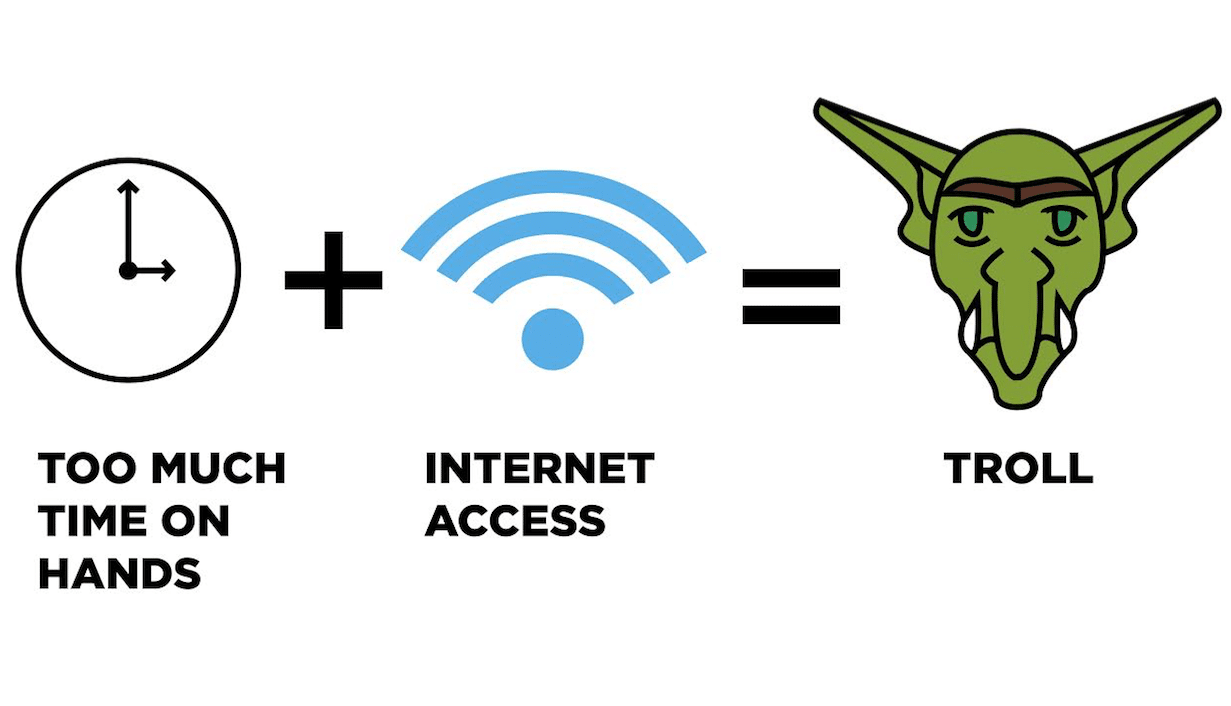Imagine working your whole life to be successful at something and throwing it all away over a troll. That doesn’t mean you can’t speak out. Virtually everyone has some form of social media, including college athletes. Although fans have just as much a right to criticize things as athletes do to respond, I expect a little more maturity in faces I’m familiar with than random accounts.
There will always be someone with an opinion on Twitter. Trolls can be regular people: journalists, middle-schoolers, college kids, grandparents, etc. Social media brings enthusiastic supporters, but also haters with the same energy.
The ability to broadcast is right at everyone’s fingertips. The gift and curse of social media are that it’s easily accessible. In less than 30 seconds, anyone can log on Twitter and rant about how much you hate someone or something. We’ve seen celebrities do this to people and businesses that receive hundreds of hateful comments and reviews as a result.
The internet is just mean. People have hair-triggers suppressing the urge to share their darkest thoughts.
Death threats, name-calling, scolding and bullying can flood an athlete’s social media accounts seconds after they make a bad play. The athlete’s true mistake is reading these comments and taking them personally.
Wide receiver Jaylen Smith, a standout offensive weapon for the Cardinals experienced it in football’s first home game this year. He missed what most people thought was an easy touchdown catch against WKU and was immediately criticized. Former teammate James Quick took an issue with fans’ comments.
Fans on social media have a high expectation for athletes. These expectations and criticism however, can be too high for an athlete to handle which can cause serious negative impacts on an athlete’s mental health. College athletes are regular people too.
Let’s not forget that these conversations are often between anonymous adults and kids fresh out of high school. But that’s just what fans do, and it’s usually driven by diehard passion, not hatred for the individual. They just want their team to win.
Do fans go too far? Yes. Are there trolls who just want to bring people down? Yes. But it’s the athlete’s job to stay focused.
There is some hope for the future though. DuPont Manual High School senior Aidan Robbins is a running back commit for Louisville, and he said “let them talk.”
“Fans will be fans. People criticize and say things that you may not necessarily like or agree with, but part of being a collegiate athlete is having the skin to forgo what people say and just play the game,” Robbins said.
If you’re a fan, please keep in mind that college athletes are people too. If you’re an athlete, stay focused, you’re auditioning for the biggest role in your life. Don’t let fans bring you down and don’t let them down. Play the game and lead our team to victory. #GoCards
Graphic by Shayla Kerr / The Louisville Cardinal






